The 'art of living' inspires Bardo Collections in Tunisia
The new Bardo Collections brings Tunisian craftsmanship, heritage and design to the fore in furniture and objects, recently unveiled in the Lac 3 district of Tunis.
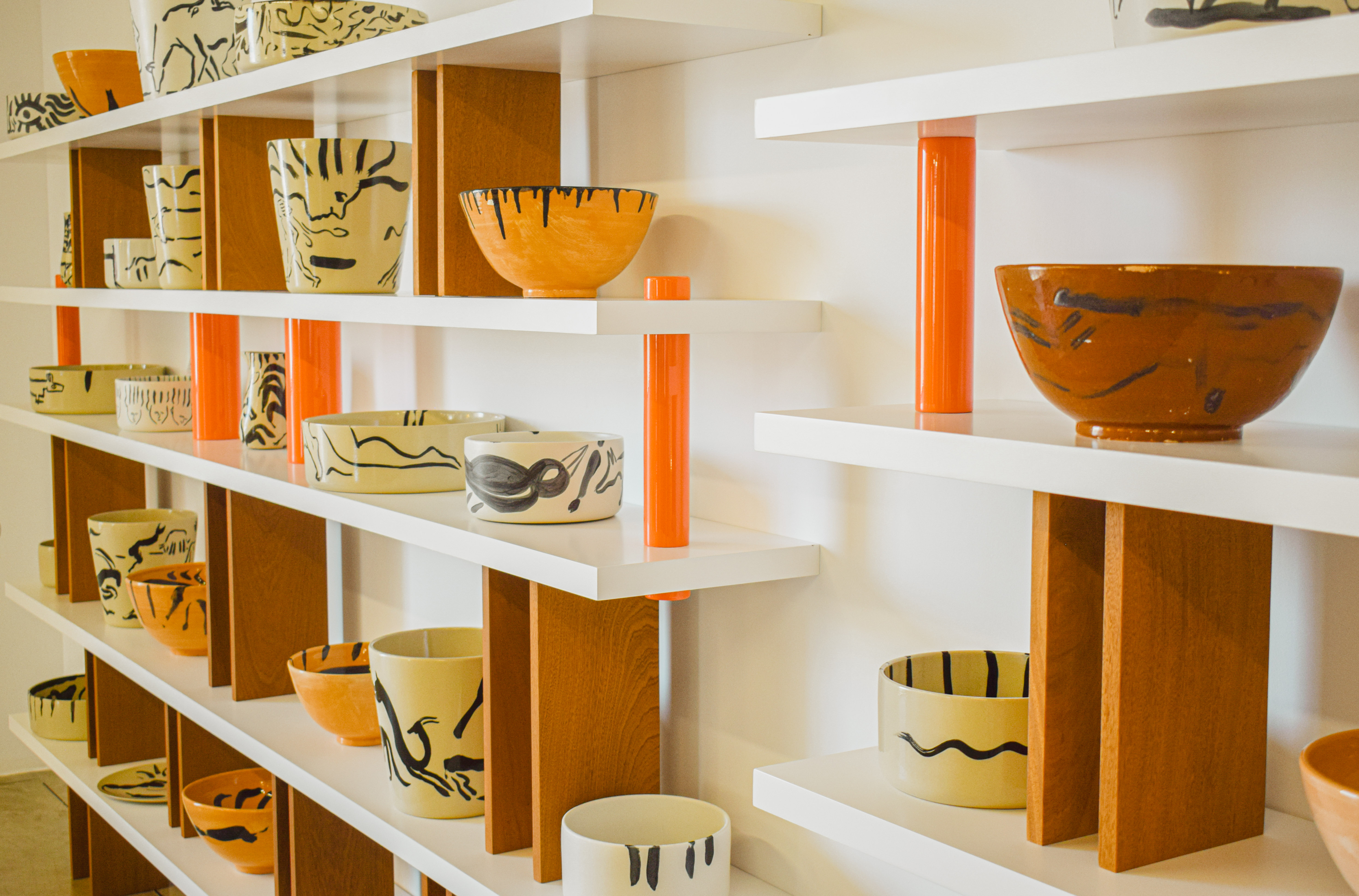
‘The idea for Bardo Collections was inspired by the desire to offer design objects made by artists,’ says architect and designer Chacha Atallah, the curator of this new collection, which launched in Tunis last week.
The idea soon evolved into a wider collection of art, objects and furniture celebrating what Atallah calls the ‘art of living’, designed by architects, artists or designers and made by craftspeople in Tunisia.
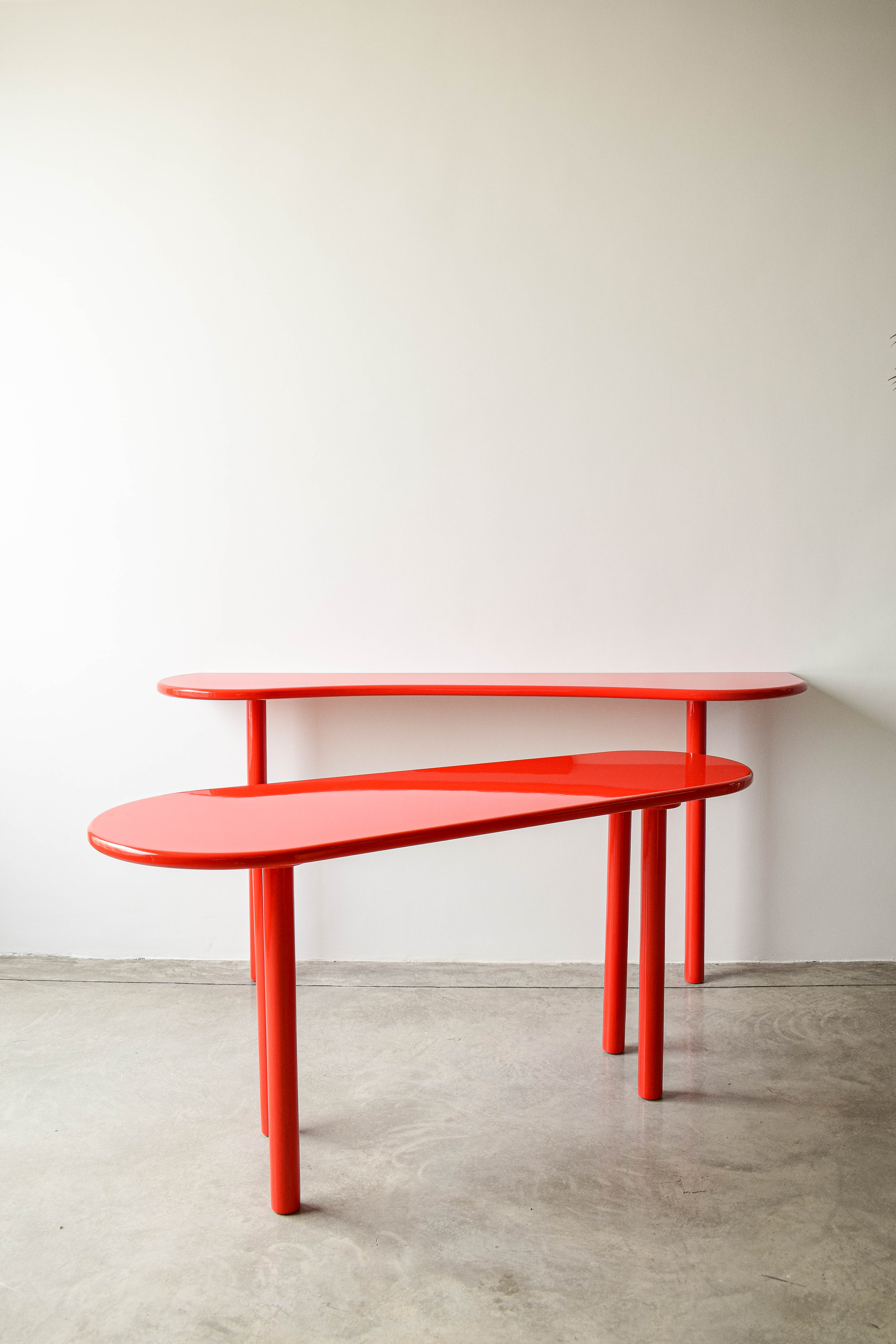
'Double Desk' by Chacha Atallah
At the launch, in collaboration with gallerist Selma Feriani, on the second floor of Feriani’s recently opened and purpose-built art gallery in Tunis (also designed by Atallah), the objects were displayed amid lush plants and carefully selected vintage pieces. The result was a galaxy of pieces that bear the seductive intellectual and physical signature of their creators and makers.
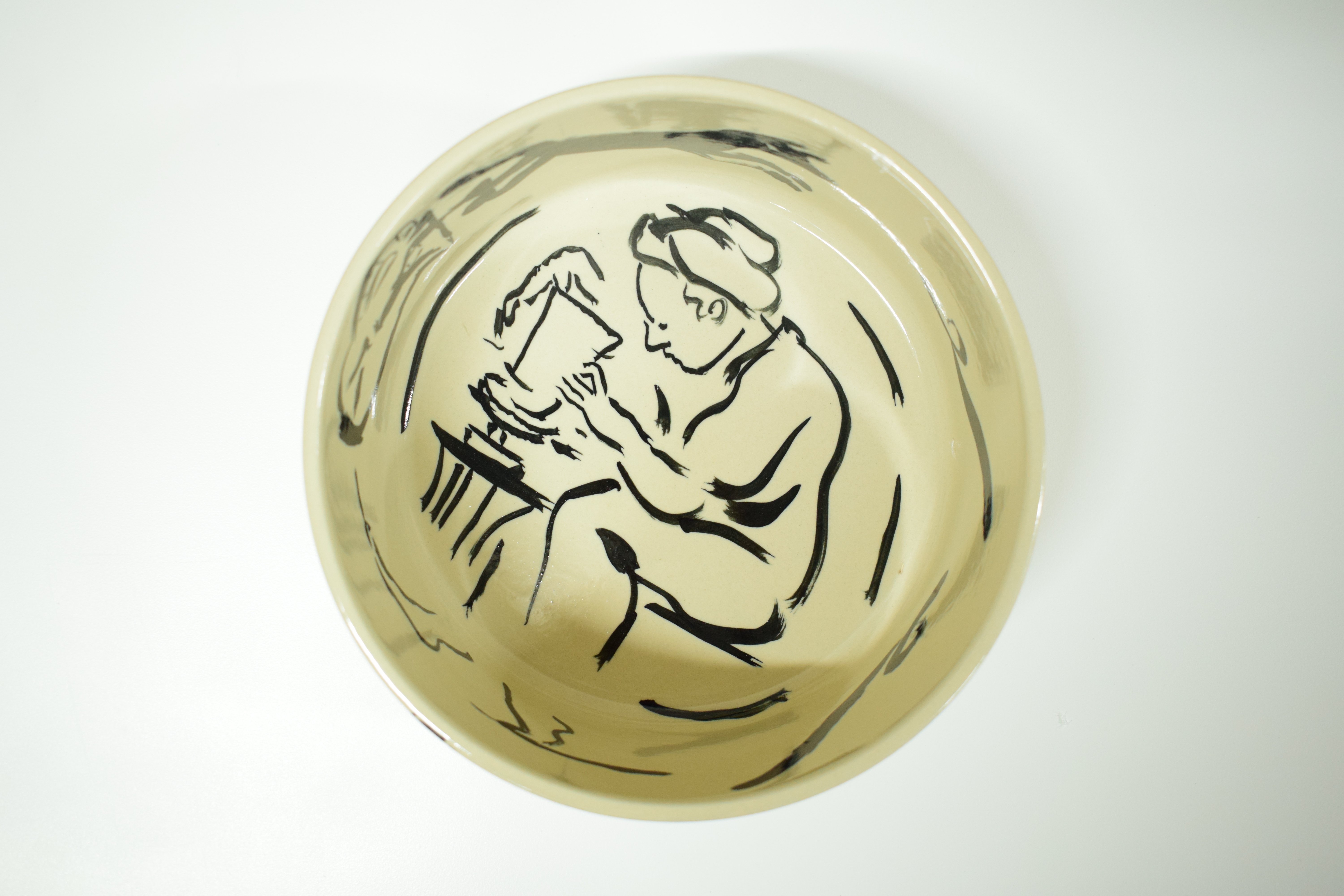
Ceramic bowl by Chacha Atallah, hand-painted by Tunisian artist Aymen Mbarki
The theme for the inaugural Bardo collection is Jardin Précieux (precious garden). ‘The garden is the very essence of Mediterranean culture; it is our refuge when the weather is hot and the source of some of the best verses in Arabic poetry,’ explains Atallah. ‘To celebrate the garden, we created one in the Bardo space, an Eden where visitors can come in, sit down and enjoy a moment of calm.’
The collection, which will be expanded in September 2024, so far includes lithographies, photos, jewellery, textiles and various furniture pieces. The furniture, ceramic pieces and bed covers were designed by Atallah, while the rest of the collection is by artists including Catalina Swinburn (the lithographies), Sofia Essaied (the hand-woven jewellery) and Skander Khlif (the photos).
All of the pieces, including a collection of leather accessories, were made in collaboration with local artisans, some whom Atallah has been working with for over a decade, others of whom the team got to know as a result of this project.
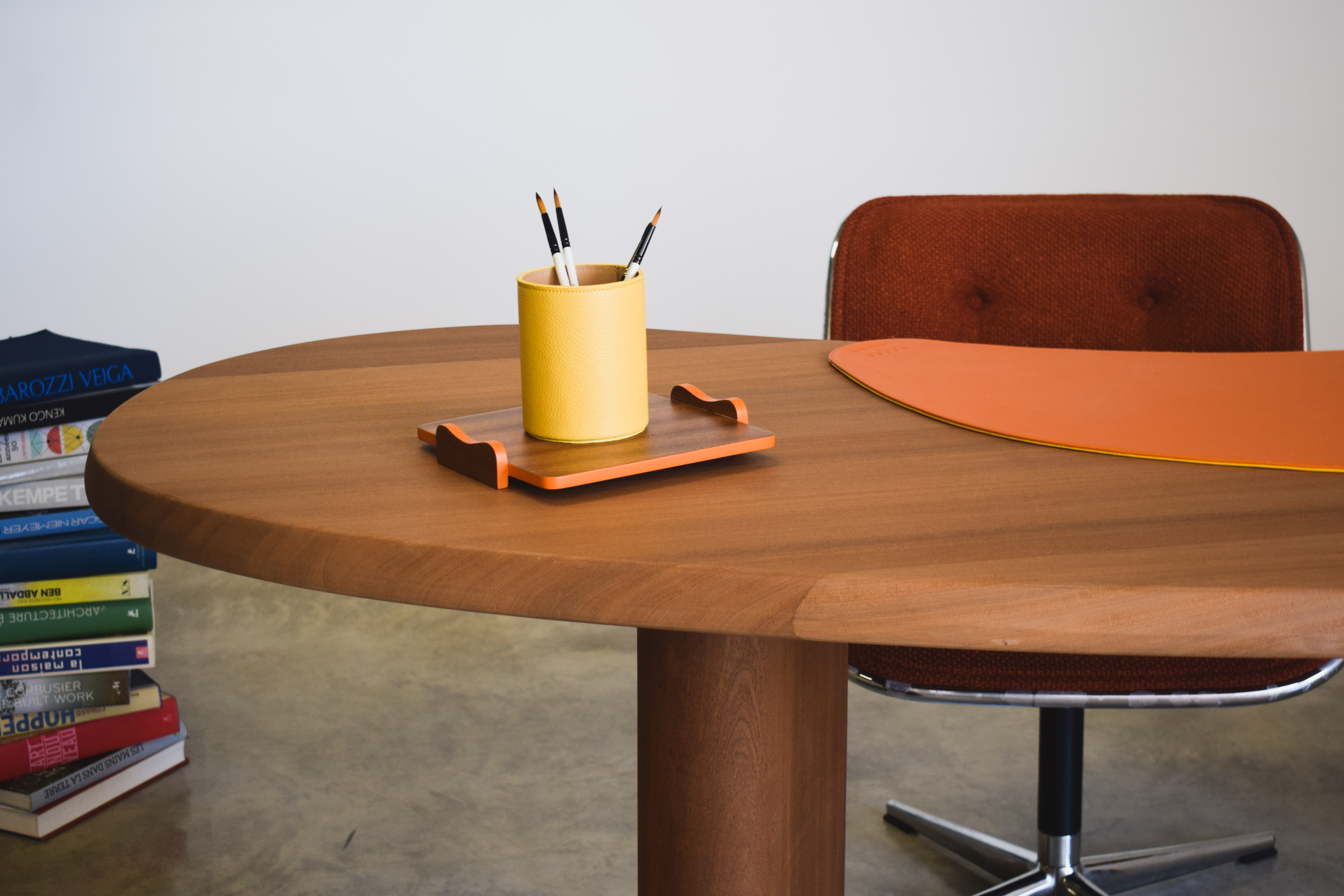
‘Rio’ desk in mahogany by Chacha Atallah
Atallah’s contribution to the collection includes two desks, a modular sofa, and coffee and dining tables. Inspired by curves and shapes found in nature and made from natural materials such as solid wood and stone, they can be made to measure using different materials and finishes.
Wallpaper* Newsletter
Receive our daily digest of inspiration, escapism and design stories from around the world direct to your inbox.
Her sculptural sweeping ‘Rio’ desk is a combined ode to the Brazilian city’s Guanabara Bay and the sparkling Gulf of Tunis. Made entirely out of mahogany and finished with a water-based varnish, it is paired with a yellow and orange leather desk mat meticulously stitched by hand. ‘Behind each of our products is the story of hard-working and passionate makers,’ says Atallah.
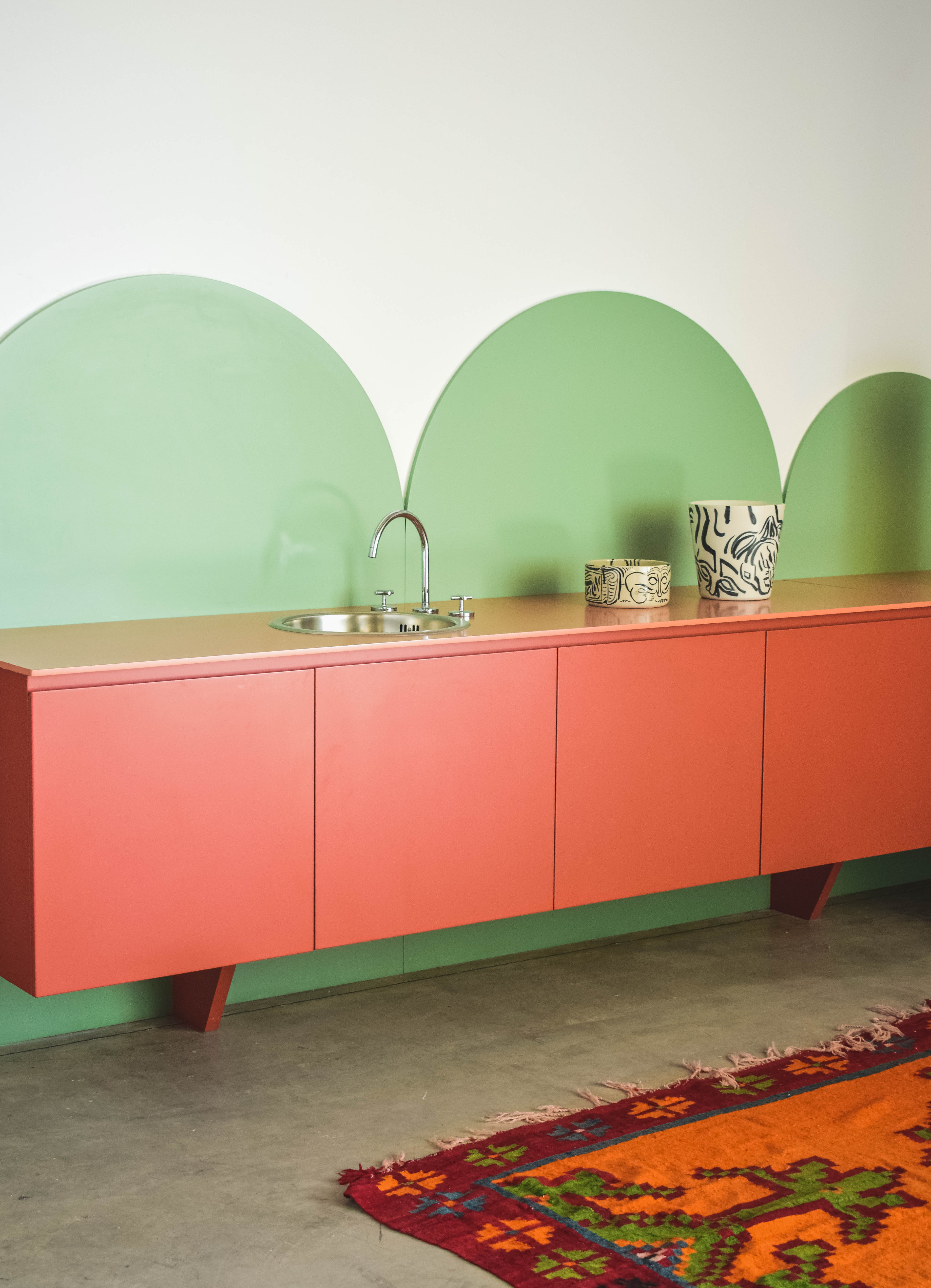
‘Prairie’ modular kitchen by Chacha Atallah
The carpenter Atallah collaborated with to bring these pieces to life works in Nabeul, a coastal town in north-eastern Tunisia known for its centuries-long wood craftsmanship. The furniture series also includes the ‘Babylon’ bookshelf, comprised of modular units that reference the steel sections used in the construction industry, explains Atallah, and the ‘Prairie’ modular kitchen that comes with cabinet or drawer storage and can be combined with original and colourful geometric splash backs.
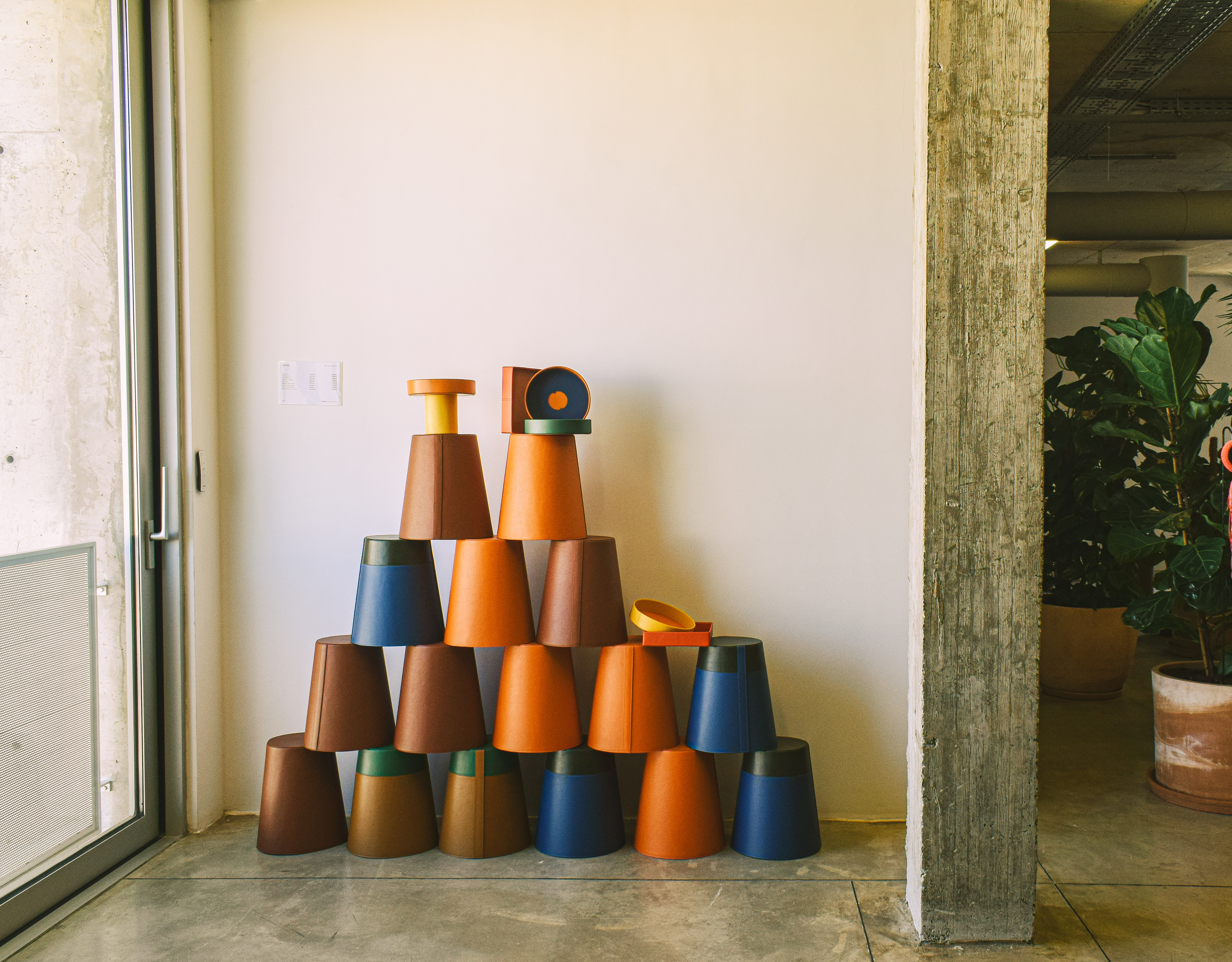
Leather accessories made in collaboration with Tunisian artisans for Bardo Collections
A major highlight of the collection is the 200-piece strong limited-edition ceramic series designed by Atallah and hand-painted by Tunisian artist Aymen Mbarki. The half-man, half-animal figures on the pieces appear to be dancing and are inspired by the linear figures of primitive art, explains Mbarki; they meld traditional Mediterranean and North African heritage and imagery with a surrealist touch.
Mbarki, who is used to working on 2D sheets of paper, says the collection was an opportunity for him to explore ‘new textures and materials and explore the increasingly blurred boundary between art and design’.
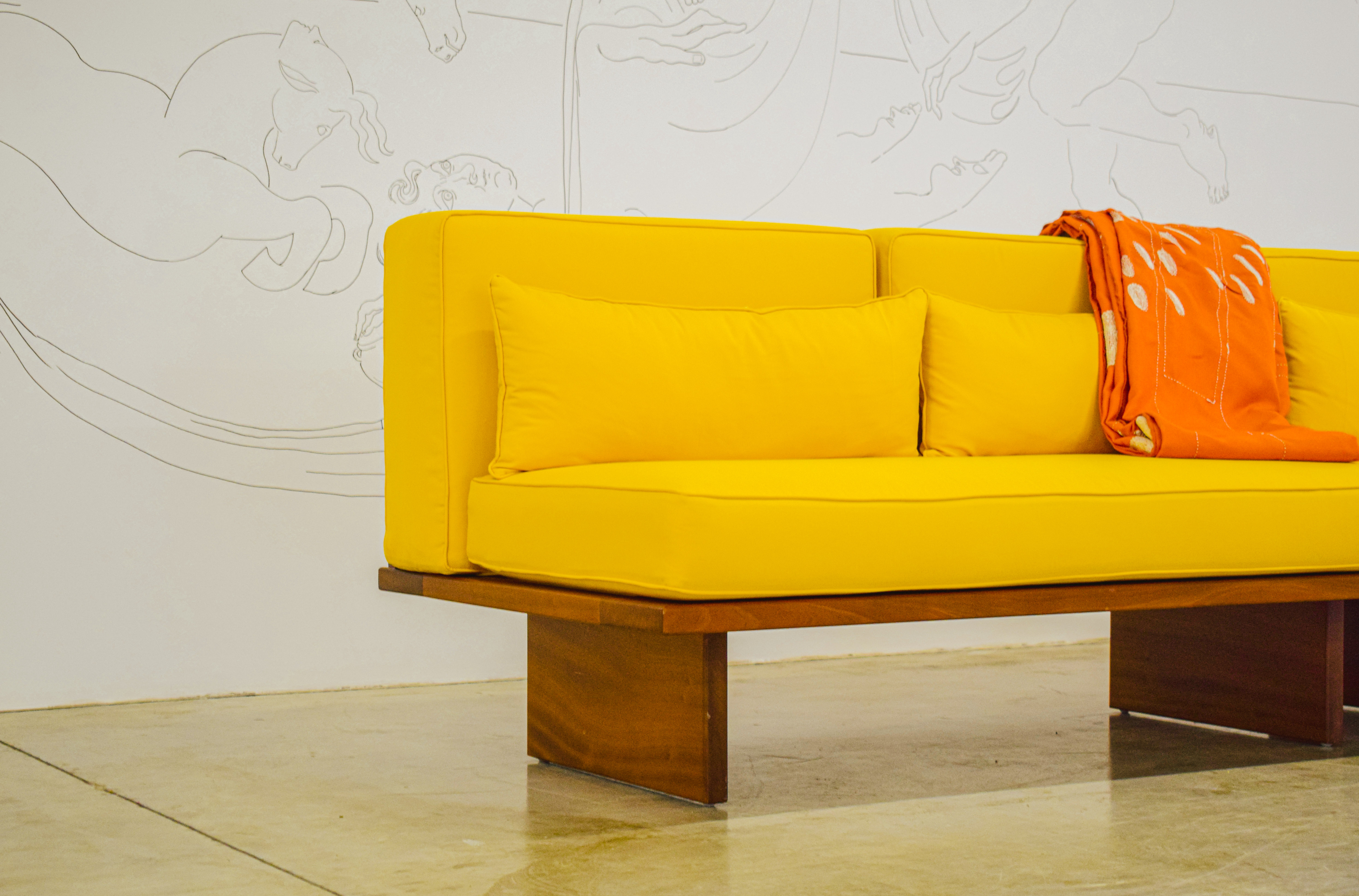
Bedcover by master embroiderer Nejib Belhadj
The three bed covers in the new collection were designed by Atallah and crafted by hand by a skilled group of women working in Mahdia, Tunisia’s former capital, in the workshop of master embroiderer Nejib Belhadj. In the past, women would gather in the afternoons on the patios of their homes to drink coffee and work on traditional garments they embroidered, Atallah explains. This is how this knowledge was passed down through generations. Bardo Collections was founded in part to revive such skills, she says, as well as the fortunes of the struggling local craft economy, through contemporary design.
‘In September, we will launch a new table in collaboration with Aymen Mbarki, as well as carpets made out of seagrass and more jewellery, by a new guest designer,’ says Atallah. Though the pieces in the collection are all very different in design and use, there is a coherence and shared identity to them; they speak of a land, a history and a distinct materiality.
The new Bardo Collections is also about bringing Tunisian craftsmanship, heritage and design to the rest of the world. And the results are rich and compelling.
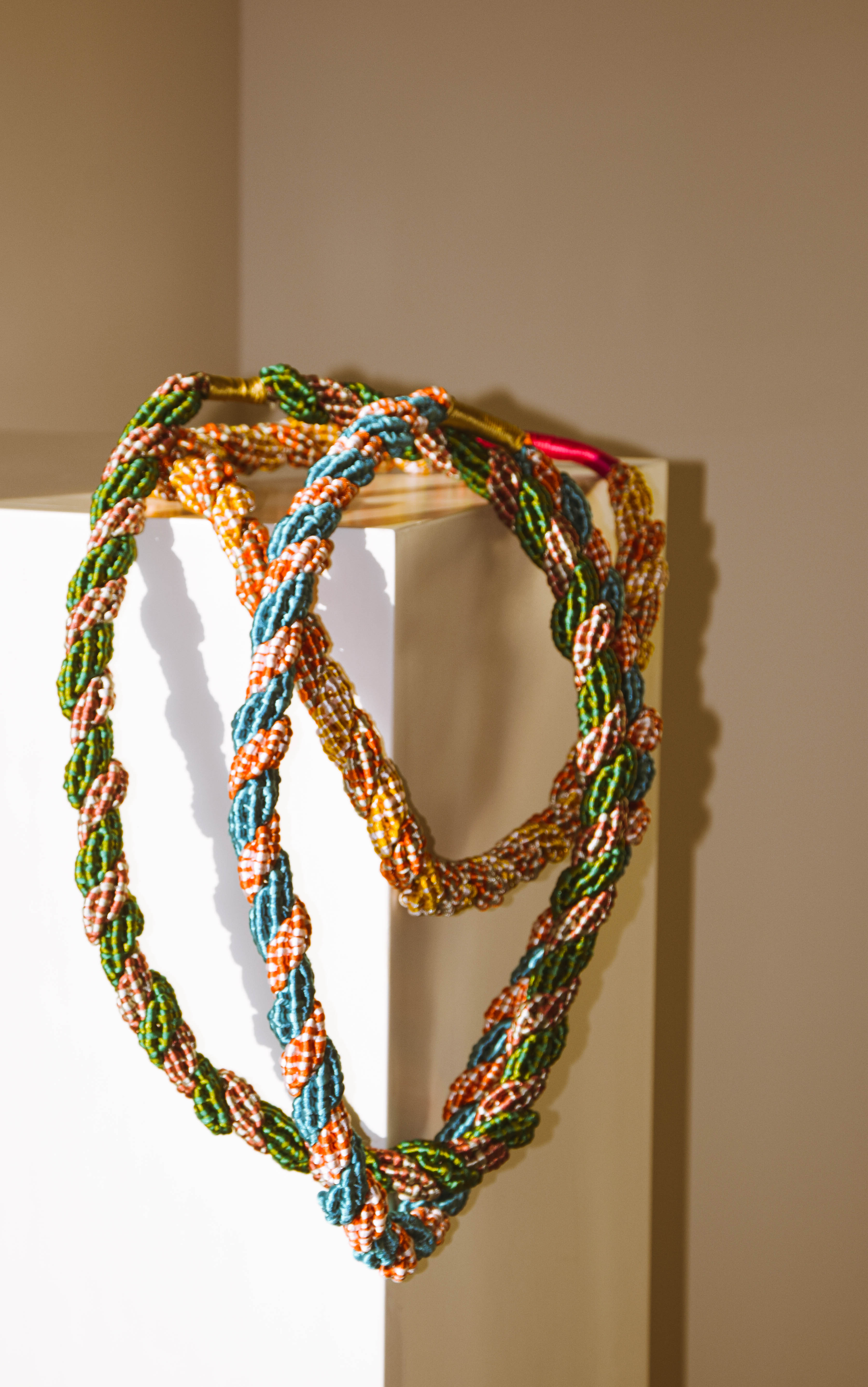
Jewellery by Sofia Essaied
Giovanna Dunmall is a freelance journalist based in London and West Wales who writes about architecture, culture, travel and design for international publications including The National, Wallpaper*, Azure, Detail, Damn, Conde Nast Traveller, AD India, Interior Design, Design Anthology and others. She also does editing, translation and copy writing work for architecture practices, design brands and cultural organisations.
-
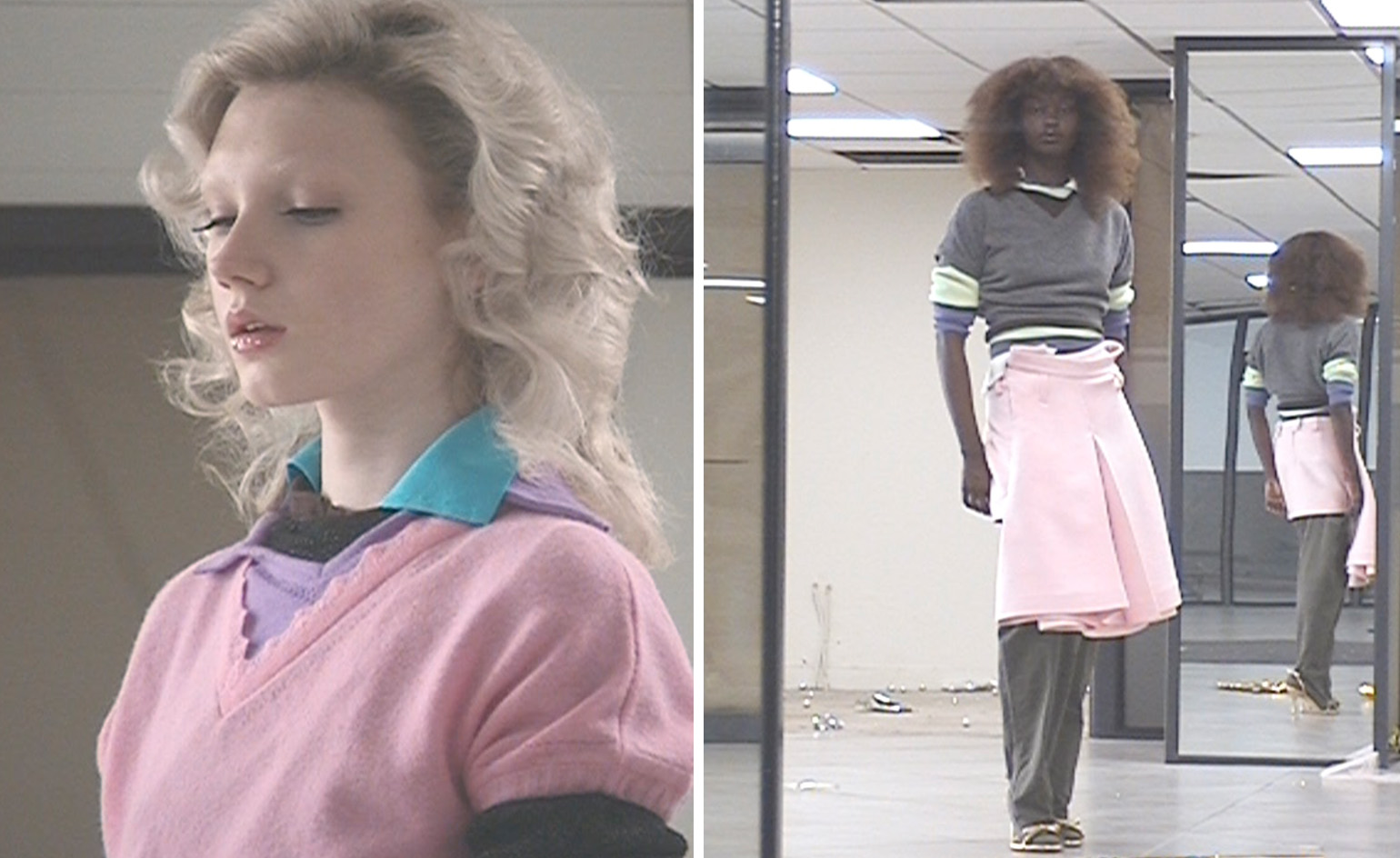 All-In is the Paris-based label making full-force fashion for main character dressing
All-In is the Paris-based label making full-force fashion for main character dressingPart of our monthly Uprising series, Wallpaper* meets Benjamin Barron and Bror August Vestbø of All-In, the LVMH Prize-nominated label which bases its collections on a riotous cast of characters – real and imagined
By Orla Brennan
-
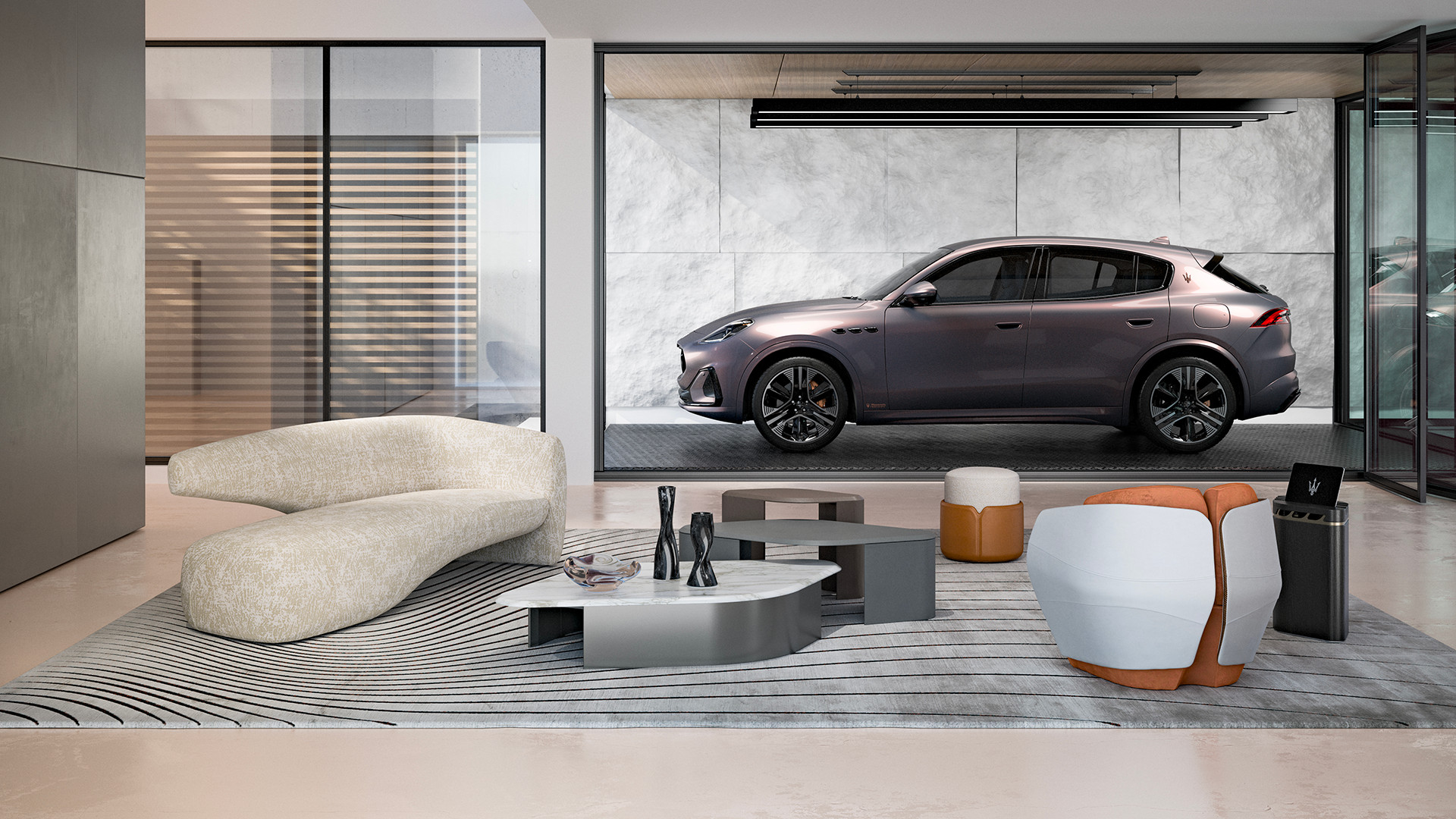 Maserati joins forces with Giorgetti for a turbo-charged relationship
Maserati joins forces with Giorgetti for a turbo-charged relationshipAnnouncing their marriage during Milan Design Week, the brands unveiled a collection, a car and a long term commitment
By Hugo Macdonald
-
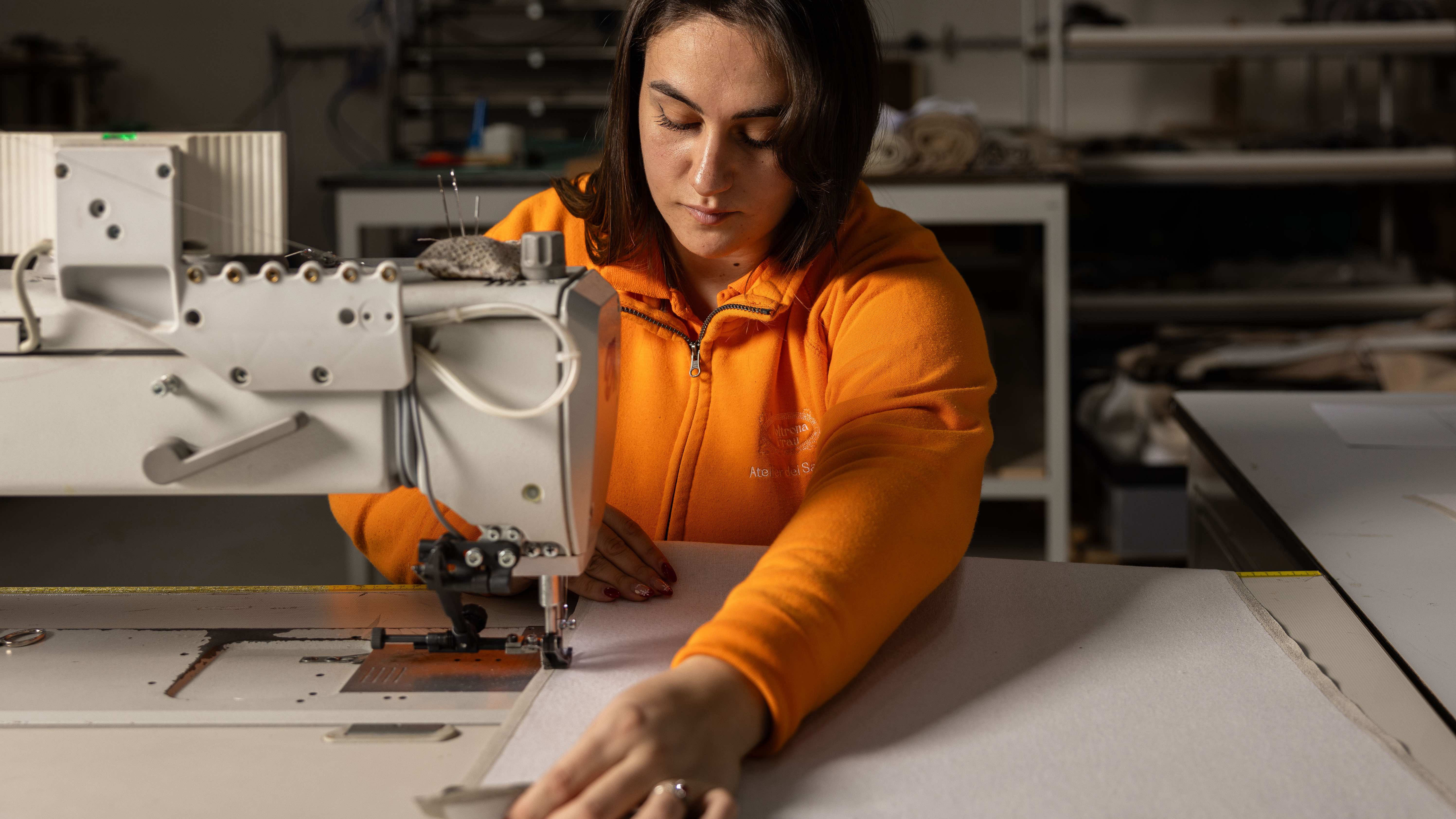 Through an innovative new training program, Poltrona Frau aims to safeguard Italian craft
Through an innovative new training program, Poltrona Frau aims to safeguard Italian craftThe heritage furniture manufacturer is training a new generation of leather artisans
By Cristina Kiran Piotti